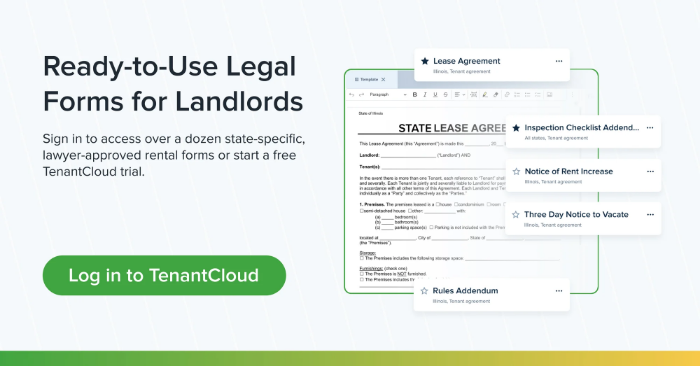
One of the more unpleasant parts of landlording is navigating an eviction process, which can be quite stressful for everyone involved. Knowing your rights and obligations regarding eviction is crucial, whether you're a landlord handling challenging conditions or a renter having trouble paying your rent.
Here are the core steps of the eviction process in Hawaii:
| Step | Estimated Time |
| Initial Notice Period | 1-120 Calendar Days |
| Court Issuing Summons | 3-21 Business Days |
| Court Serving Summons | 3-21 Business Days |
| Tenant Response Period | 5-7 Business Days |
| Court Ruling | 3-21 Business Days |
| Court Serving Writ of Possession | 1-3 Business Days |
| Final Notice Period | 1-3 Business Days |
Grounds for Eviction
In Hawaii, landlords are required to have legal grounds to evict tenants. These grounds typically include:
- Nonpayment of rent
- Remaining in the rental unit after the lease ends
- Violating the terms of the lease agreement
- Engaging in illegal activities on the premises
Depending on the specific grounds for eviction, landlords must follow the appropriate legal procedures, including providing proper notice and offering tenants an opportunity to remedy the situation.
Specific Grounds for Eviction
| Grounds for Eviction in Hawaii | Notice Period |
| Nonpayment of Rent | 5 Days |
| End of Lease or No Lease | 45 Days |
| Lease Violations | 10 Days |
| Illegal Activity | Immediate |
Nonpayment of Rent
If a tenant fails to pay rent on time in Hawaii, landlords have the right to initiate eviction proceedings. To do so, the landlord must serve the tenant with a 5-day notice to quit, allowing the tenant a brief window to either pay the overdue rent or vacate the premises. Landlords are not obligated to provide tenants with a grace period for rent payments unless specified in the lease agreement. Should the tenant fail to rectify the situation within the notice period, the landlord can proceed with filing an eviction lawsuit.
If you are looking to simplify your property management tasks while ensuring efficient tenant screening, try TenantCloud's free trial today!
End of Lease or No Lease
In cases where a tenant's lease has expired or if the tenant is on a month-to-month or holdover tenancy ("tenant at will"), landlords can seek eviction by serving a 45-day notice to vacate. This notice effectively terminates the tenancy and provides the tenant with ample time to find alternative housing arrangements. If the tenant remains on the premises beyond the notice period, the landlord can proceed with filing an eviction lawsuit to regain possession of the rental property.
Initiating the Eviction Process
Eviction proceedings in Hawaii commence with the service of a Hawaii eviction notice. Should any of the aforementioned lease violations arise, landlords are obliged to serve the appropriate notice, granting tenants a specific timeframe to rectify or address the violation. There exist three distinct eviction notices landlords may issue in Hawaii:
- Rent Demand Notice: Tenants are allotted 5 days to settle outstanding rent payments or vacate the premises. This notice specifies the amount of overdue rent, the deadline for payment, and the potential termination date of the lease if payment is not received promptly (HRS § 521-68(a)).
- Lease Violation Notice: Tenants are provided with 10 days to remedy the breach or vacate the premises. This notice outlines the nature of the violation, the actions required for rectification, and the deadline for compliance, with termination looming should the tenant fail to rectify the breach (HRS § 521-69(a)). Instances warranting this notice include:
- Failure to maintain the rental unit as per HRS § 521-51.
- Material violations of housing or building laws affecting health and safety.
- Unlawful usage of the rental unit.
- Unconditional Notice to Quit: This notice necessitates immediate eviction without an opportunity for remediation. It is invoked when the tenant causes or threatens irreparable harm to any individual or property on the leased premises (HRS § 521-69(a)).
| Notice Periods for Eviction Notices | Notice Period |
| Rent Demand Notice | 5 Days |
| Lease Violation Notice | 10 Days |
| Unconditional Notice to Quit | Immediate |
In all eviction cases, landlords retain the right to seek recovery of actual damages and reasonable attorney's fees.
Lease Violations
In Hawaii, a landlord has the authority to evict a tenant for breaching the terms of their lease agreement or failing to fulfill their legal obligations under Hawaii landlord-tenant law. This process begins with the landlord serving the tenant with a 10-day notice to comply or vacate, allowing the tenant to rectify the issue or vacate the premises.
Examples of lease violations encompass:
- Neglecting to maintain the rental unit in a clean and sanitary condition
- Refusing the landlord access to the rental unit as stipulated in the lease
- Misusing fixtures or appliances in an unreasonable or hazardous manner
- Causing minor property damage, such as small holes in sheetrock or missing blinds
- Disrupting the peace and enjoyment of other tenants
Should the tenant fail to address the violation or vacate the premises by the end of the notice period, the landlord can proceed with filing an eviction lawsuit.
Illegal Activity
In Hawaii, a landlord possesses the authority to evict a tenant for engaging in illegal activities on the premises. In such cases, the landlord must serve the tenant with an immediate notice to vacate, affording the tenant no opportunity to rectify the situation.
1. Illegal activities in Hawaii encompass:
- Threatening or causing irreparable harm to another individual or the property itself
- Possessing illegal drugs or substances
- Causing significant property damage through willful negligence
Failure to vacate the premises immediately warrants further action, with the landlord proceeding to file an eviction lawsuit.
2. Illegal Evictions in Hawaii:
In Hawaii, certain types of evictions are deemed illegal. Landlords found guilty of such actions may be liable to compensate the tenant for damages incurred, along with covering legal fees.
- "Self-Help" Evictions: Landlords are prohibited from forcibly removing tenants by changing locks, disconnecting utilities, or confiscating tenant belongings. The only lawful means of eviction is through a court order obtained via the formal eviction process.
- Retaliatory Evictions: It's unlawful for landlords to evict tenants in response to exercising legally protected rights, such as reporting unsafe living conditions, requesting repairs, or engaging in legal proceedings against the landlord.
Eviction Process in Hawaii: A Step-by-Step Guide
Step 1: Initiating Eviction Proceedings
To kick off the eviction process in Hawaii, landlords must serve written notice to the tenant. According to Hawaii law, eviction notices can be delivered through various methods, ensuring the notice reaches the tenant effectively. Accepted methods include:
- Hand delivery to the tenant.
- Delivery to the tenant's recorded address.
- For eviction due to dwelling maintenance failure or nonpayment of rent, posting the notice prominently at the premises is also permitted if personal service isn't feasible.
5-Day Notice To Quit
In Hawaii, if a tenant falls behind on rent, whether in full or partially, landlords can issue a 5-day Notice To Quit. This notice gives tenants a 5-day period (excluding weekends and legal holidays) to settle the overdue balance or vacate the property.
45-Day Notice To Vacate
For tenants without a lease or those on a month-to-month arrangement in Hawaii, landlords can serve a 45-day Notice To Vacate to terminate the tenancy, providing ample time for the tenant to find alternative housing.
10-Day Notice To Comply or Vacate
If a tenant breaches lease terms or fails in their legal responsibilities, landlords can serve a 10-day Notice To Comply or Vacate, granting tenants 10 days to rectify the issue or vacate the premises.
Immediate Notice To Vacate
In cases of tenant involvement in illegal activities on the premises, landlords can serve an Immediate Notice To Vacate, initiating prompt eviction proceedings.
Step 2: Filing Lawsuit with Court
The subsequent step involves Hawaii landlords filing a complaint in the appropriate court, accompanied by a $155 filing fee. The summons and complaint can be served by various methods, including personal delivery, leaving with a resident, or conspicuously posting it on the rental unit.
Step 3: Court Serves Tenant with Summons and Complaint
Tenants must respond to the court within 5 to 7 days after receiving the summons to state their case. Failure to do so may result in a default judgment in favor of the landlord, advancing the eviction process.
Step 4: Court Holds a Hearing and Issues a Judgment
While Hawaii law doesn't specify the timeline for an eviction hearing, tenant absence may lead to a default judgment in favor of the landlord, allowing the eviction process to proceed.
Step 5: Issuance of Writ of Possession
The writ of possession serves as the tenant's final notice to vacate, providing an opportunity to collect belongings before enforcement by authorized personnel. Once issued, the rental agreement is deemed annulled and canceled.
Step 6: Property Possession is Returned
Hawaii law doesn't specify enforcement timelines for the writ of possession. Failure to vacate the post-grace period, if any, may result in forced removal from the premises.
Frequently Asked Questions
1. Can a landlord evict you immediately in Hawaii?
No, a landlord cannot evict you immediately in Hawaii. They must give you at least 24 hours' notice before initiating the eviction process, even if you’ve been involved in illegal activity or have failed to pay rent.
2. Can you evict a tenant without a lease in Hawaii?
Yes, you can evict a tenant without a lease in Hawaii. However, you must provide them with 10 or 45 days’ written notice, depending on the rent payment schedule. Additionally, you must follow the legal eviction process to remove the tenant.
3. Can you kick someone out of your house in Hawaii?
Yes, you can kick someone out of your house in Hawaii. However, if that person paid rent or provided services in exchange for accommodation, such as cleaning, you may need to follow legal eviction procedures.
4. Can a landlord evict someone for no reason in Hawaii?
If the tenant doesn’t have a written lease, a Hawaii landlord doesn’t need a specific reason for eviction. Similarly, if a written lease expires, landlords don’t require additional reasons for eviction apart from the lease expiration.



